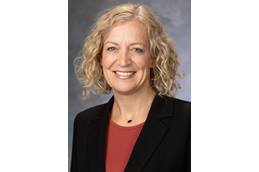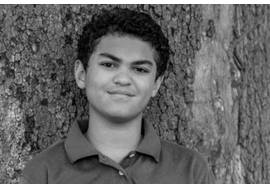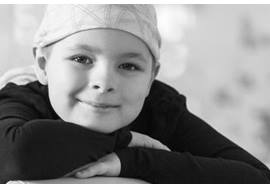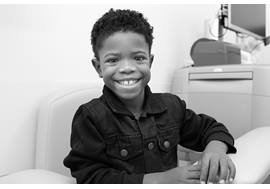Pediatric Thyroid Program
The Pediatric Thyroid Program at Nationwide Children’s Hospital offers wide-ranging care for all thyroid diseases in children and teens. Multiple departments work together to check for, diagnose and treat thyroid dysfunction, Graves’ disease, thyroid nodules and thyroid cancer.
When your child is sick, your whole family is affected. We help by making sure your family understands your child’s diagnosis and treatment plan.
Conditions We Treat
Members of the Pediatric Thyroid Program have the skills to manage and treat any thyroid disorder that may occur in children and teens. This includes broad care for:
- Hyperthyroidism
- Hypothyroidism
- Thyroid nodules
- Thyroid cancer
Our surgery experts use the latest technology and techniques to solve complex thyroid concerns. These include thyroid nodules, thyroid cancer, Graves’ disease, parathyroid problems and others.
Meet Our Team
The Pediatric Thyroid Program gives children and teens the best medical and surgical care for any thyroid condition. Our team makes sure that patients are seen by the right specialist to best treat their medical and/or surgical needs.
Our Leadership
What to Expect
Most patients with a new thyroid concern will be seen by pediatric endocrinologists. They are doctors that help manage thyroid disorders. Depending on the condition, a referral may be made to a pediatric endocrine surgical specialist if a patient:
- Already has a thyroid disorder.
- Was diagnosed with thyroid cancer or a nodule that needs surgery.
Endocrinologists:
- Are usually the first doctor a thyroid patient sees.
- Check thyroid function and decide if more assessments are needed.
- Refer patients to a different specialist in the Pediatric Thyroid Program if a tissue sample or surgery is needed.
- Manage thyroid hormones if the thyroid gland is removed as a part of therapy.
Pediatric Thyroid Surgeons:
When a thyroid nodule, mass, or cancer is found, the first treatment may be surgery. Part or all the thyroid gland(s) may be removed. Lymph nodes are also checked and may be removed if they are enlarged or could be causing cancer to spread. Pediatric endocrine surgeons and otolaryngologists work closely to make sure patients who need surgery get the best care.
Radiologists:
- May need to do tests on the thyroid or help with treatment.
- Take an ultrasound of the neck to see what the thyroid looks like. They also check for nodules and any problems with lymph nodes.
- May have to take a sample from a nodule(s) to test.
Nuclear medicine thyroid exams can be done to check thyroid function, look for nodules that aren’t working correctly, or to look for cancer spread. Radioactive thyroid therapy can be used to treat overactive thyroid glands and to treat thyroid cancers.
Oncologists:
A patient may need to see a pediatric oncologist. They will check the thyroid for cancer or to see if the cancer is spreading. If surgery cannot treat the cancer, the patients may need different treatments depending on where it is in the body.
Pathologists:
- Checks a thyroid nodule or mass for cancer.
- Diagnoses the nodule or mass to see if all or part of it needs to be removed.
Frequently Asked Questions
What is a thyroid nodule?
A thyroid nodule is a bump in the thyroid gland that is found either by examination or by ultrasound imaging.
Is there more than one type of thyroid nodule?
Thyroid nodules are usually harmless, but in a minority of patients they can be caused by cancer. There are also some thyroid nodules that cause overproduction of thyroid hormone, and these cause symptoms of over-active thyroid and are usually benign.
How are thyroid nodules diagnosed?
Thyroid nodules are found either by examination of the neck or by ultrasound imaging. Diagnosis of cancer is made after obtaining tissue by needle biopsy or surgery.
What are the risk factors for pediatric thyroid cancer?
Exposure to head and neck radiation is known to increase the risk for thyroid cancer. Thyroid cancer is also associated with a number of rare genetic syndromes. It is believed that changes in different genes that regulate or control cell growth are responsible for the cancerous changes.
What are the symptoms of thyroid nodules?
Symptoms of thyroid nodules can vary. It is possible to experience an enlarging nodule or bump in the neck, difficulty swallowing, pain with swallowing, voice changes, and in some cases no symptoms at all. If the nodule is producing thyroid hormone, it may cause sleeping difficulty, weight loss, fast heartbeat, nervousness and diarrhea.
How are thyroid nodules treated?
If the thyroid nodule is felt to be benign it will be followed by observation and repeat ultrasound imaging. If the nodule is enlarged and causing symptoms it can also be removed surgically. Your doctor will determine if the nodule needs to be removed.
How is thyroid cancer treated?
If the nodule is determined to be cancer or is very concerning for cancer the entire thyroid gland will be removed. If thyroid cancer has spread to nodes or beyond, then radioactive iodine therapy is indicated.
What is the outlook for patients with thyroid cancer?
Overall the prognosis for thyroid cancer is excellent. Even in the presence of metastatic disease, 30 year survival rates are 90-99% for children with differentiated thyroid cancer. Recurrence of disease can occur years later and therefore the condition requires long-term surveillance with lab tests, ultrasounds and physical examination.
Inside the Pediatric Thyroid Program
Conditions We Treat
- Hyperthyroidism
- Hypothyroidism
- Thyroid Cancer
- Thyroid Nodules








